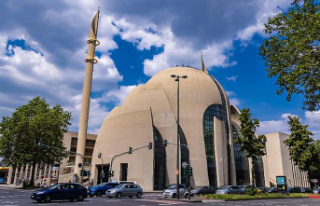His father fell out of favor under Mao Zedong, and he himself is about to be crowned absolute autocrat in China: Xi Jinping is likely to begin a third term at the 20th Chinese Communist Party Congress, which begins on Sunday, and with it his position as the country's most powerful ruler since People's Republic founder Mao underpin. Since he was appointed general secretary of the Communist Party and chairman of the Central Military Commission ten years ago and also became president a few months later, Xi has consistently expanded his power. How did he go about it, what factors played a role? An overview:
- Xi bypassed the economic policy-making powers that normally rest with the prime minister. He did this by chairing various "small leadership groups" - including a new group formed in 2012 after he took office for "reform and opening-up" and an existing group on finance.
- He undertook an all-out campaign to eliminate officials deemed disloyal, corrupt or ineffective. He expanded his power base by filling vacant posts with allies. So far, 4.7 million officials have been screened.
- Xi put trusted allies in charge of the party's human resources administration, which controls the appointment of key employees. His first chief of the organization department was Zhao Leji, whose father had worked under Xi's father. He was succeeded in 2017 by Chen Xi, a former classmate of Xi's at Tsinghua University.
- He tightened control over the military by enacting sweeping reforms and cuts from 2015 onwards.
- Xi controls the internal security apparatus with an ongoing "purge campaign" that has brought down many police chiefs and judges.
- From 2015 he ordered Parliament and other bodies such as the Cabinet and the Supreme Court to inform him of their annual work reports.
- In 2016, Xi urged state media to join the party line as her "last name is the party". Since then, media freedoms have continued to be curtailed, while Xi-related propaganda has steadily increased.
- He formally established himself as the "core" of the party in 2016 - party lingo for supreme leader.
- Xi amended the party charter in 2017, adding "Xi Jinping Thoughts on Socialism with Chinese Characteristics". With an ideology of the same name, he is on a par with Mao and Deng Xiaoping.
- With his proclamation in 2017, he made the party's supreme role clear: "Party, government, military, people, education; East, South, West, North, Center: the party leads everything."
- He amended the country's constitution in 2018 to remove the term limit for the presidency, removing an obstacle to his lifetime tenure.
- In a historic resolution passed in 2021, the party pledged to uphold the "Two Establishments", signifying the party's loyalty to him.












